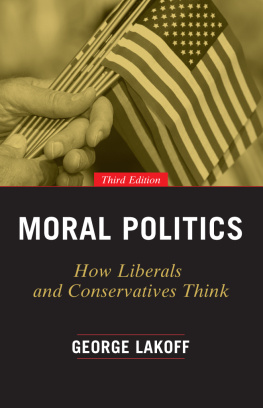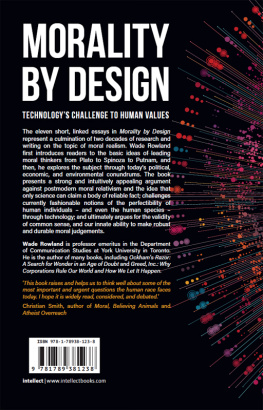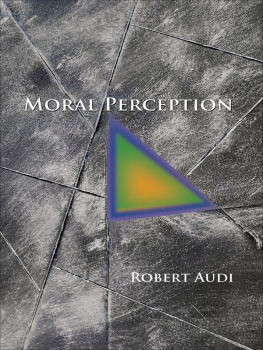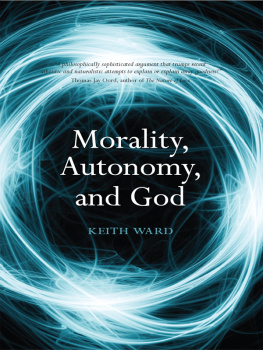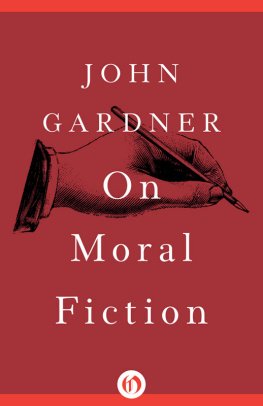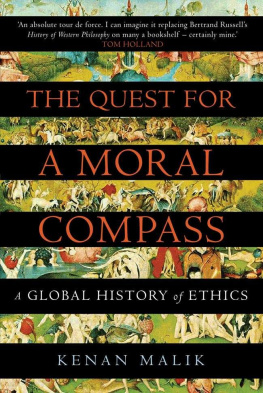Copyright 2022 Wayne Gustave Johnson. All rights reserved. Except for brief quotations in critical publications or reviews, no part of this book may be reproduced in any manner without prior written permission from the publisher. Write: Permissions, Wipf and Stock Publishers, W. th Ave., Suite , Eugene, OR 97401 .
W. th Ave., Suite
Introduction
P hilosophers generally agree that human beings quite naturally and appropriately seek a fulfilling life of some kind. In the quest for a fulfilling life, human beings find themselves in contact with others who also seek a fulfilling life. These quests are often mutually supportive as in family and friendship relations. These quests, however, are also often in conflict. The fulfillment of Joe may come at some cost to Jill. The conflicts involved in these mutual quests provide the setting for the development of moral systems of some kind. People seek a moral pathway which can promise not only fulfillment for the moral person but also an answer to the question of possible moral responsibility toward others. A good life is sought in both the non-moral senseas in a good autoand in the moral sense of goodas in that was a good deed. Over centuries, a variety of moral systems and guidelines which address this quest for a good life have developed. However, significant disagreements about these guidelines and systems persist. Morality seems to be a perennial scene for debate, and agreement about matters moral seems difficult to achieve.
This book will not attempt to give moral advice. While some views will be challenged in chapter , it will not argue for the validity or truth of any particular moral system. Instead, this book aims at helping the reader explore the nature of moral systems by explaining why these systems develop and why they differ so sharply. The author hopes that these attempts at explanation will clarify the nature of moral decisions and help the reader explore and confirm their own individual moral convictions.
This book may not make the search for a moral pathway easier since it suggests that moral decisions are both inevitable and numerous. However, following Sren Kierkegaard, it may be fruitful, at times, to make life decisions more difficult. Moral pathways are serious choices.
Since this book claims to explain the very nature of morality, it would seem appropriate to begin by posing possible moral issues. These issues will serve as background for the wider discussion of matters moral pursued in the book. Some issues are specific in nature, such as those raised by a variety of trolley problems that explore the choice of killing or letting die.
Problem one: An empty runaway trolley is moving down a track. On the track ahead a dozen people are congregated and are unaware of the coming trolley. You are near a switch that could turn the trolley down a spur where only one person stands in danger. You apparently have the choice of either killing one person or letting a number of other persons die. Do you have a moral responsibility to throw the switch in order to save a number of lives even though one person will die because of your action? Are you morally prohibited from throwing that switch?
Problem two: An empty runaway trolley is moving down a track. On the track ahead a dozen people are congregated and are unaware of the danger. You are standing near a fat man. If you push the fat man onto the track his size will stop the trolley. This action will save a number of lives, but the fat man will die. Are you morally obligated to push the fat man onto the rails? Are you morally prohibited from doing so?
The above examples seem not to involve your own long-range self- interests, aside from any moral praise or blame you may receive. The problems can be altered so that your own long-range self-interests are deeply involved. Problem three: You are standing, alone, on the bank of a swollen river when you notice that a small child had fallen into the stream and could not swim. You are not a strong swimmer. Do you have a moral obligation to attempt to rescue the child at some risk to your own life? What if it were your child? Problem four: You have a comfortable lifestyle and income. You learn that small children are starving in another country. Do you have a moral obligation to help feed those children? If so, how much of your own resources should you give to that cause? Problem five: There are homeless people in your community, and the nights are cold. You own the house in which you live and have some spare bedrooms. Are you morally obligated to take in such a homeless person? Does it matter who this person might be? What if the homeless person is your child?
These last three issues may arouse a possible sense of guilt. If this is so, what is the nature of that guilt? Is it real guilt in the sense that you actually do have moral responsibilities in these situations? Or is it neurotic guilt as a feeling of guilt where there is no actual guilt? Or is it existential guilt in the sense that life by its nature lays moral burdens upon you which can only be borne, not remedied?
On the other hand, the problems raised above may not have prompted any feeling of moral guilt for you. This would imply that you have reasons for not feeling guilt. Such reasons would represent a moral theory that justifies your lack of a feeling of guilt. How would you formulate such a theory?
A summary of the following chapters follows. Chapter will set forth a Broad Theory about moral theories and explore the various phenomena that this Broad Theory seeks to explain, such as why there are so many competing moral theories and why agreement seems difficult to attain. Chapter examines the point of morality. Why do moral systems develop at all? I will conclude, following William James, that moral reflection and moral systems are attempts to find a way to appropriately arbitrate among the competing wants, needs, and desires (WNDs) of human beings as well as other sentient creatures. These competing WNDs illustrate the conflicts that can develop in mutual quests for the good life. The challenging moral issues arise when both resources and human sympathies are limited.
In seeking to arbitrate among these competing WNDs, two related issues must be considered. The first issue is deciding which of my own WNDs should be honored? I cannot eat my cake and have it too. This is the question of what constitutes a truly fulfilling human life. This fulfillment can be expressed in a variety of terms: happiness, pleasure, flourishing, excellence, peace, eternal glory. All major moral systemsreligious or non-religiousaddress this question, and all assert that the quest for a fulfilled life is natural and legitimate. Furthermore, these systems also claim that the proposed moral pathway is necessarily part of the quest for fulfillment. Morality is for us. Chapter explores how the quest for the good life includes the quest for meaning and significance in the face of mortality and finitude. Chapter presents brief summaries of significant moral theories put forward by a variety of philosophers. These summaries will trace how differing worldviews result in differing answers regarding the question of a fulfilling life and the question of moral responsibility. I seek to show that ontology matters. The fulfilling life proposed by Epicurus, for instance, is in sharp contrast to the view of a fulfilling life presented by Thomas Aquinas.


